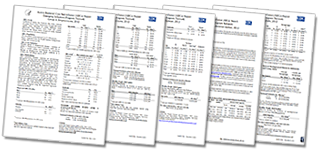Key points
- Currently, ABCs generates annual data reports for group A Streptococcus, group B Streptococcus, Haemophilus influenzae, Neisseria meningitidis, and Streptococcus pneumoniae.
- The most recent year of finalized data available is 2023.
- Previously, ABCs generated reports for legionellosis and methicillin-resistant Staphylococcus aureus.
- View ABCs data, including case and death counts, case and death rates, serogroups and serotypes, and syndromes, in the reports below.

View ABCs data on Bact Facts Interactive
If you want to visualize the data below, use Bact Facts Interactive. You can choose which data to look at for each pathogen for a specific time period.
Latest final data from ABCs
Active Bacterial Core Surveillance (ABCs) Report for Group A Streptococcus, 2019
Active Bacterial Core Surveillance (ABCs) Report for Group B Streptococcus, 2019
Active Bacterial Core Surveillance (ABCs) Report for Haemophilus influenzae, 2019
Active Bacterial Core Surveillance (ABCs) Report for Neisseria meningitidis, 2019
Active Bacterial Core Surveillance (ABCs) Report for Streptococcus pneumoniae, 2019
Data and Findings
Current pathogens
In addition to those listed above, ABCs surveillance reports for the following pathogens and years can be found at CDC Stacks:
- Group A Streptococcus (1997–present)
- Group B Streptococcus (1997–present)
- Haemophilus influenzae (1997–present)
- Neisseria meningitidis (1997–present)
- Streptococcus pneumoniae (1997–present)
Previous pathogens
Surveillance reports for the following pathogens that were previously part of ABCs can be found at CDC Stacks:
- Legionellosis (2011–2015)
- Methicillin-resistant Staphylococcus aureus (2005–2014)
Find additional surveillance information on these pathogens at the following sites:
Legionnaires' disease surveillance, including reporting trends.
The Invasive Staphylococcus aureus Infection Surveillance Program collects data for describing incid...
Impacts of COVID-19 pandemic on ABCs data
CDC observed historic decreases in the invasive bacterial disease burden caused by ABCs pathogens.
Keep Reading:
2020 Data and Impacts of COVID-19
Early-onset neonatal sepsis trends
ABCs conducts surveillance for early-onset invasive disease caused by bacterial infections in infants 0 through 2 days of age.
Keep Reading:
Early-Onset Neonatal Sepsis Surveillance and Trends